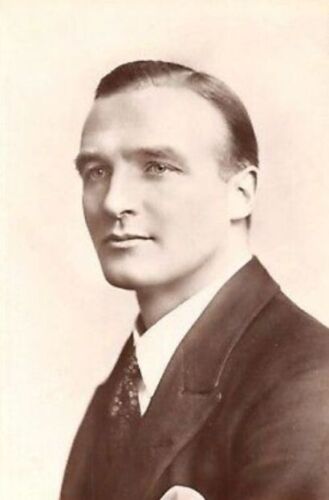Born Bertram Henry Wendon Gregory into a working class family, he started into professional life as an iron caulker. In 1915,
he became a policeman and soon after that, a soldier in World War I, deployed to Palestine. After the war, he served in the
police again, until 1921.
He had got some vocal training since 1907 already by the organist of his church choir, and after leaving the police force, he
made singing his new vocation. His probable debut was a concert with the Ealing Philharmonic Society in November 1923. His
operatic debut came in 1925, at the Old Vic Theatre in London, as Radamès. He stayed at that house until 1928, and sang also
Gounod's Faust, Don José, Lohengrin, Manrico and Pinkerton there. Then until 1939, he sang primarily with touring
companies, notably the Covent Garden Touring Opera (as Stolzing for instance), but also at Covent Garden proper several times
(as Froh, Turiddu, Pinkerton, Alfred in Fledermaus), not without returning to the Old Vic and its successor, Sadler's
Wells, throughout the 1930s, and making a few excursions to Belfast. Other than that, he sang on the radio frequently, and gave
many concerts (he was a fixture at the London Proms from 1934 to 1947).
In 1942, he was one of several rotating Hoffmanns at the London Strand Theatre. After World War II, he was seen a lot with the
touring Carl Rosa Company, and sang in Dublin in 1946 and 1948 (Samson, Radamès, Pinkerton and Don José), and the spring
season in Belfast in 1947. On the radio, he was hugely popular until 1952 (where he sang not only opera, but also light music);
he seems to have given up his career in 1957, and devoted his last few years to teaching voice at the Guildhall School of
Music.
His singing is described, by those who heard him in actual performances, as an easily produced lyric tenor. How and why he
would sing all those heavy parts with such a voice, is a mystery; the result in the above Aida excerpt is accordingly
devastating, and certainly the opposite of "easily produced". This is low-class singing by any and even by modern standards, and
Wendon the rare example of a historical singer who makes even some of our 21st century opera stars appear to shine.
Sound file source and biographical
reference 1; reference 2: Kutsch & Riemens; reference 3 and picture source: Forgotten Opera Singers, reference 4, reference 5: booklet to EMI LP album RLS 707 "Stars of the the Old Vic and
Sadler's Wells"

